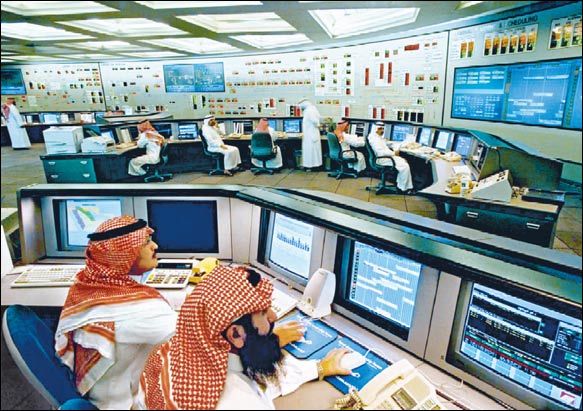The Keystone Pipeline System is a pipeline system to transport synthetic crude oil and diluted bitumen ("dilbit") from the Athabasca Oil Sands in northeastern Alberta, Canada to multiple destinations in the United States, which include refineries in Illinois, Cushing oil distribution hub in Oklahoma, and proposed connections to refineries along the Gulf Coast of Texas. It consists of the operational "Keystone Pipeline" (Phase 1) and "Keystone-Cushing Extension" (Phase 2), and two proposed Keystone XL pipeline expansion segments. After the Keystone XL pipeline segments are completed, American crude oil would enter the XL pipelines at Baker, Montana and Cushing, Oklahoma.[1]
The Keystone XL has faced lawsuits from oil refineries and criticism from environmentalists and some members of the United States Congress. The U.S. Department of State in 2010 extended the deadline for federal agencies to decide if the pipeline is in the national interest, and in November, 2011, President Obama postponed the decision until 2013. On November 30, Senate Republicans introduced legislation aimed at forcing the Obama administration to approve the Keystone XL pipeline within 60 days, unless the president declares the project is not in the national interest.[2]
Keystone Pipeline
TransCanada Corporation proposed the project on February 9, 2005. In October 2007, the Communications, Energy and Paperworkers Union of Canada asked the Canadian federal government to block regulatory approvals for the pipeline, with union president Dave Coles stating that 'the Keystone pipeline will exclusively serve US markets, create permanent employment for very few Canadians, reduce our energy security, and hinder investment and job creation in the Canadian energy sector'.[3] However, the National Energy Board of Canada approved the construction of the Canadian section of the pipeline, including converting a portion of TransCanada's Canadian Mainline gas pipeline to crude oil pipeline, on September 21, 2007.[4] On March 17, 2008, the U.S. Department of State issued a Presidential Permit authorizing the construction, maintenance and operation of facilities at the United States and Canada border.[5]
On January 22, 2008, ConocoPhillips acquired a 50% stake in the project.[6] However, on June 17, 2009, TransCanada agreed that they would buy out ConocoPhillips' share in the project and revert to being the sole owner.[7] It took TransCanada more than two years to acquire all the necessary state and federal permits for the pipeline. Construction took another two years.[8] The pipeline became operational in June 2010.[9]


